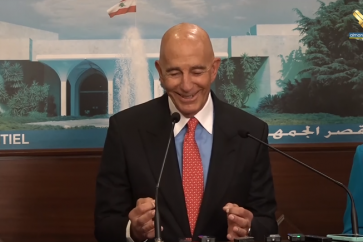Major General Qassem Suleimani was once described by Iran’s Leader of the Islamic Revolution Ayatollah Sayyed Ali Khamenei as the “Revolution’s living martyr.”
He was an icon of the country’s 1979 Islamic Revolution who was hailed a figure of national resilience against four decades of US pressure and sanctions.
But, for the US and ‘Israel’, he was an enemy and a shadowy figure in charge of Iran’s “proxy forces”.
The general, whose assassination by the US was confirmed earlier on Friday, had played a major role in defending Iran against its enemies and assisting regional countries to fight foreign occupation and terrorism.
Suleimani, born in 1957, started his military career by joining the Islamic Revolution Guards Corps (IRGC) following the victory of the Islamic revolution in 1979.
During the imposed Iraqi war on Iran, which was launched in 1980 and lasted for eight years, Suleimani gradually became known as an adept commander, leading Iranian troops in numerous battles against invading Ba’ath regime forces.
Later appointed as the chief of the IRGC’s expeditionary Quds Force, Suleimani gradually became a forefront figure in Iran’s push to assist regional states and allies counter foreign-backed interventions in the region.
As foreign-backed Takfiri outfits reared their heads in recent years, the IRGC commander emerged as a key strategist and ingenious commander leading Iranian military advisers assisting Syrian and Iraqi troops in battles against terrorists.
The general was frequently pictured on the frontlines during anti-terrorism operations from Iraq’s Mosul to Syria’s Aleppo.
In Iraq, at the height of ISIL’s terror campaign, he assisted the Baghdad government in operations to retake the strategic oil-rich city of Tikrit from the terrorist Takfiri group in 2015.
In January 2015, the head of Iraq’s Badr Organization credited Tehran and Suleimani with saving Baghdad when ISIL first unleashed its campaign of terror in the neighboring country a year earlier.
The general also took personal command of the battle against Takfiri militants in the Syrian city of Bukamal, located in Deir Ezzor Province, in November 2017.
In November 2017, Suleimani declared the end of ISIL’s territorial rule in a letter addressed to Leader of the Islamic Revolution Ayatollah Sayyed Ali Khamenei.
Earlier this year, the Leader awarded Suleimani with Iran’s highest military order, the Order of Zulfaqar.
Hailed both by the enemies and foes as a major military tactician, General Suleimani topped Foreign Policy (FP)’s 2019 list of Global Thinkers in defense and security.
In a statement on Friday, Iran’s leader vowed “harsh revenge” for the perpetrators of the attack.
The Leader also offered condolences to the Iranian nation and General Suleimani’s family, and declared three days of national mourning.
Source: Agenceis




